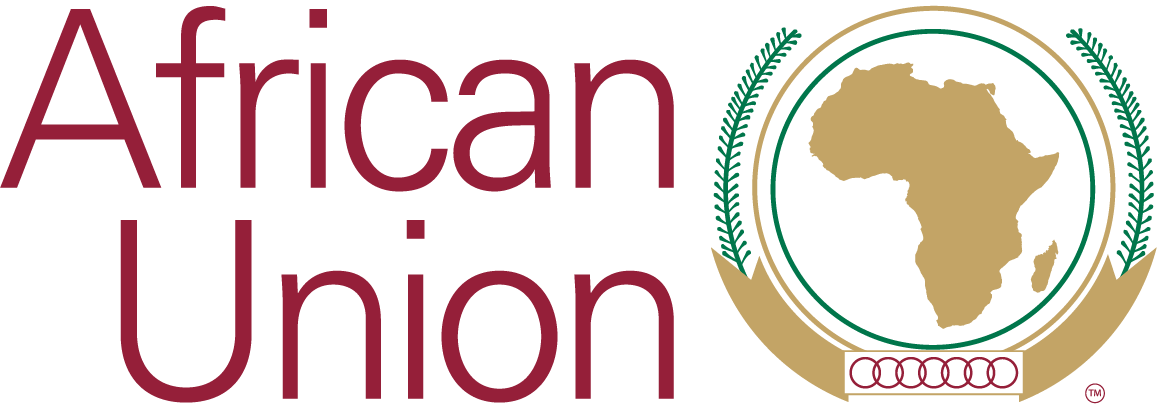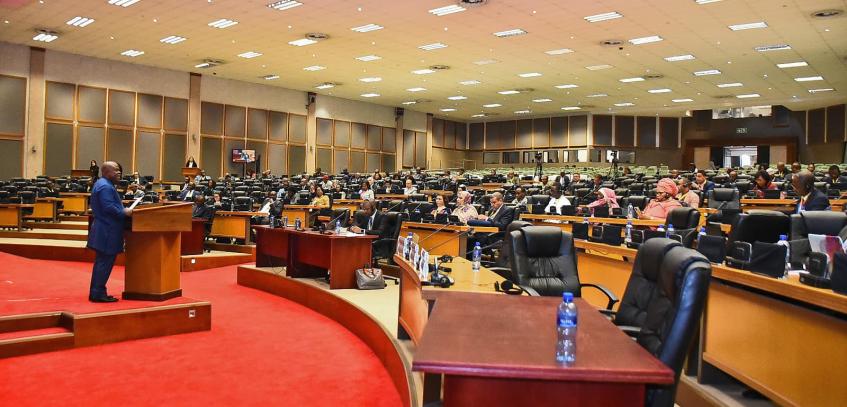The Pan-African Parliament (PAP) Workshop on African Union (AU) theme for 2023, “Accelerating the implementation of African Continental Free Trade Area (AfCFTA)”. The two-day workshop discussed the Strategic Significance of the implementation process. The engagement concluded with energised legislators displaying a clear understanding of what is required of them to ensure the successful implementation of the AfCFTA.
The AfCFTA is a flagship project of the AU’s Agenda 2063 which aspires to transform the African continent into a future powerhouse.
The fourth Vice President of the PAP, Hon. Francois Ango Ndoutoume, closed the two-day workshop having considered all the deliberations and said that while the continent has many challenges, “What we may see as Africa’s weaknesses today, will grow to be its strengths tomorrow.”
The Workshop heard that the aim of the AfCFTA is to encourage fair trade competition to promote industrial relations, investment and movements of goods, products and people on the African continent and that it will encourage commerce, business and help in the eradication of poverty on the continent.
Hon. Wavel Woodcock, a member of the PAP Committee on Trade Customs and Immigration matters, summarised the outcomes and recommendations of the Workshop saying that the PAP must play a crucial role towards the realisation of the continental integration through the AfCFTA.
This includes ensuring that all member states ratify the AfCFTA agreement to participate in intra-African trade.
“During the past two days, we also discussed the development of African products that are standardised, that are of good quality, competitive, well packaged and harmonised. Emphasis was placed on the need of the African nations to process and manufacture our own raw materials and minerals to create more jobs for our people instead of having our resources and minerals being exploited by other continents with impunity,” Hon. Woodcock said.
Parliamentarians agreed that there needs to be one currency for Africa to allow for fairness in trade, instead of using European or American currency to trade on the continent.
Another key issue that was debated was that the implementation of AfCFTA depends on the African private sector which requires an enabling environment to drive the process including requisite policies and legislations especially when it comes to the movements of goods and people.
The Parliamentarians’ comments now form part of the final 24 recommendations derived from the workshop. They include:
- Establish legislative framework and institutional mechanism to accelerate the domestication and implementation of the Agreement establishing the AfCFTA;
- Engage in robust advocacy in Member States to achieve full ratification of the AfCFTA;
- Establish a platform to articulate coherent guidelines for implementation of the operational instruments that will govern AfCFTA such as Pan-African Payments and Settlements System (PAPSS) and adjustment Facility to respond to the challenges of short-term negative impact of the liberalization process on State Parties’ fiscal capacities;
- Mobilise institutional processes in Member States for the ratification of the Protocols that are critical to the implementation of the AfCFTA and more particularly the Protocol on the Free Movement of Persons, Right of Residence and Right of Establishment;
- Sensitize Member States on the benefits of accelerating the implementation of African Continental Free Trade Area (AfCFTA), emphasise the long-term recovery and growth in member states, the impact on deeper integration in boosting incomes, increasing job creation and expedite investments;
- Establish institutional mechanisms in Member States on value addition and encourage the development of an integrated and complementary African value chains to support the commitment to transform Africa from a raw materials exporter to a producer of market-competitive value added products;
As he closed the formal proceedings today, Hon. Ndoutoume said that he felt a sense of joy and duty to be concluding the workshop as he directed Parliamentarians to go back to their countries and ensure that their governments act to speed up the implementation of the AfCFTA, thereby ensuring Africa’s economic integration and ultimately setting the path for growth, development and poverty elimination.
-Ends-








